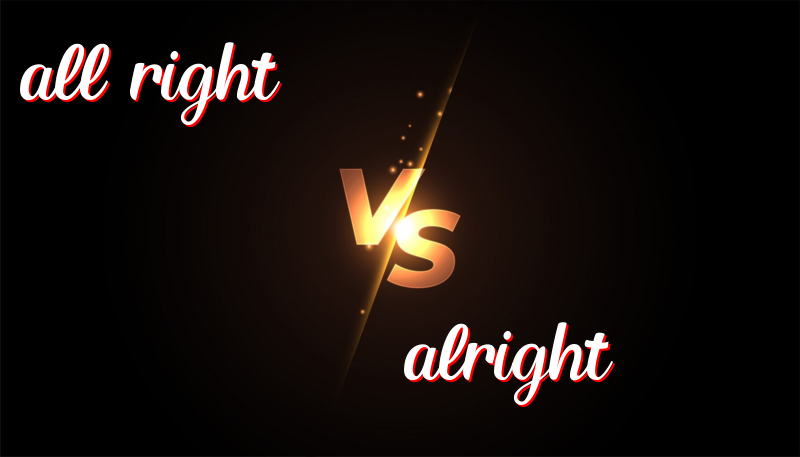Understanding the Difference Between All Right and Alright
All Right vs. Alright
Sometimes in English, we see two words for one idea. “All right” and “alright” are examples of this. Let’s learn about their history, how to use them, and how to remember them.
History
All right is the older way. It has been used since the 1500s. It means everything is okay or correct.
Alright is newer. People started using it more in the 1900s. Some people think “alright” is not correct, but many use it.
How to Use “All Right”
“All right” means something is okay or fine.
- The teacher said my answer was all right.
- I feel all right now after resting.
- Is everything all right with you?
- The movie was just all right, not great.
- The plan looks all right to me.
How to Use “Alright”
“Alright” is more casual and means okay or fine. Some people use it in everyday writing.
- The kids are alright after the game.
- Alright, let’s start the meeting.
- I guess it’s alright if you come with us.
- The song was alright, but not amazing.
- Alright, see you later!
Trick to Remember the Difference
If you want to be very correct, use “all right.” It’s the safer choice for formal writing. “Alright” is more friendly and informal, but some teachers might mark it wrong.
Summary
Both “all right” and “alright” mean the same thing: okay or fine. Use “all right” in formal writing to be safe. “Alright” is casual and might not be accepted in all places.

Leave a Reply
You must be logged in to post a comment.